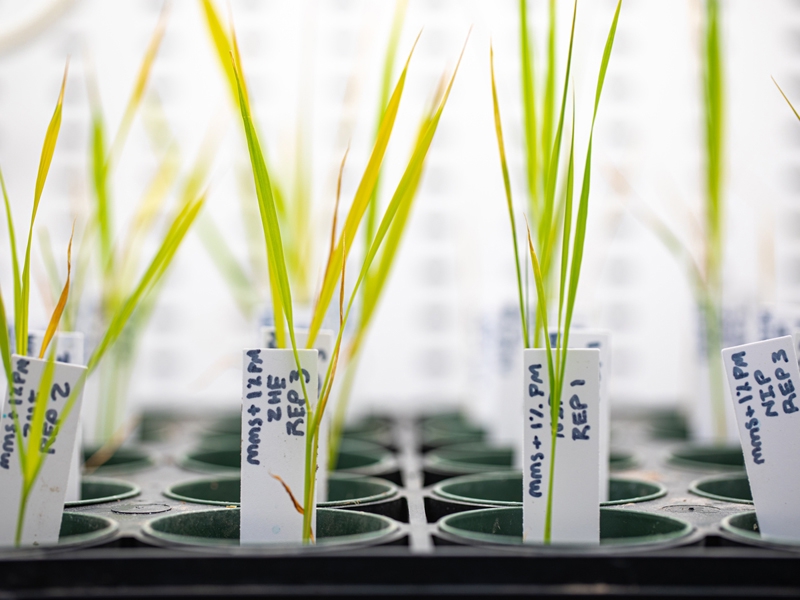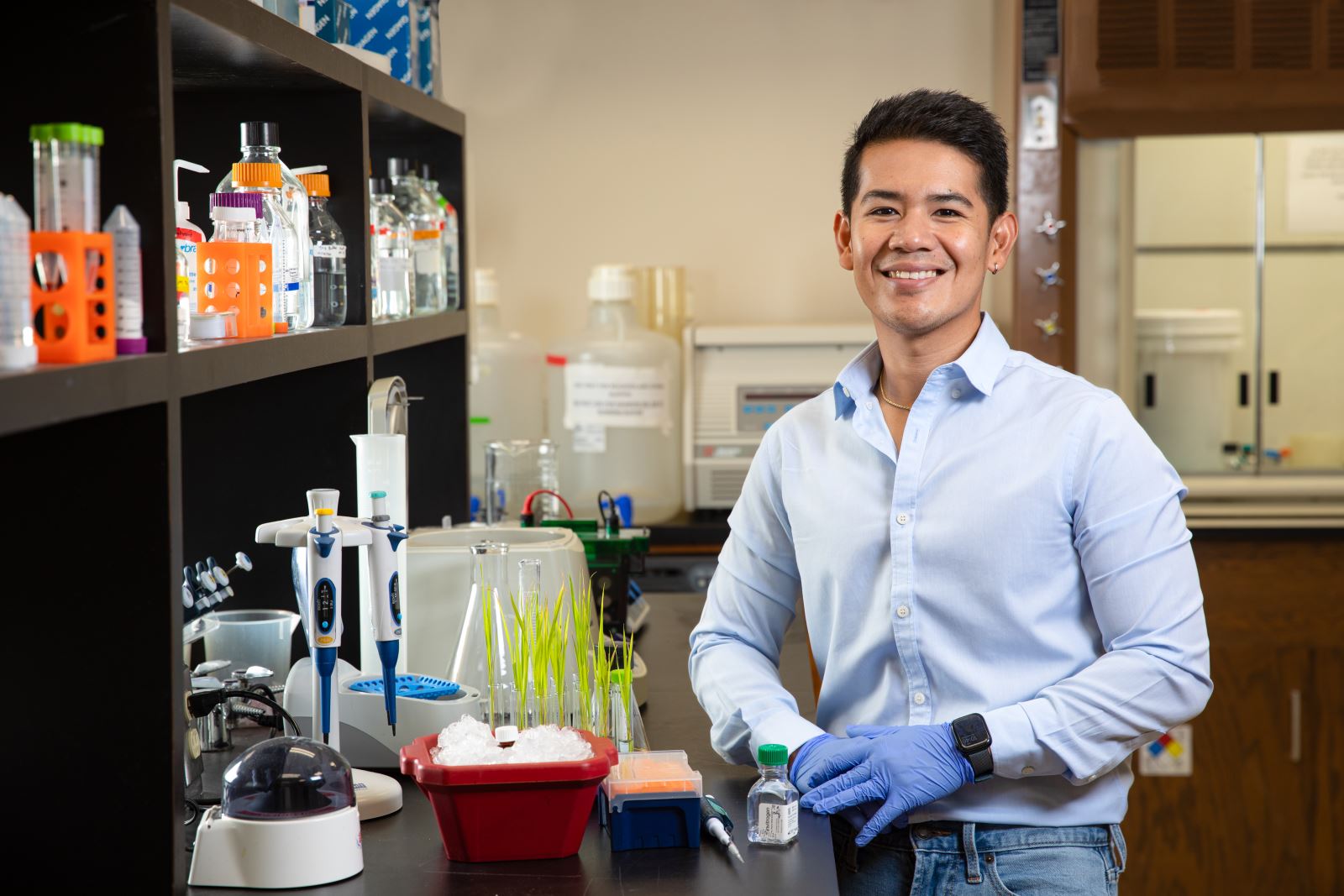
As global temperatures continue to rise, maintaining the quality and yield of crops adapted to lower temperatures will increasingly become a challenge.
One crop known to be affected by higher nighttime temperatures during the ripening phase is rice, which can exhibit a condition known as “chalkiness” due to heat stress.
Chalkiness is when the rice granule is less compact due to the decreased concentration of starch. This can result in lower milling yields, cooking quality and overall market value.
A new paper published in Plant Journal by researchers at the University of Arkansas and the University of Arkansas System Division of Agriculture, or UADA, may offer a remedy to both heat-induced and genetic chalkiness. The paper, “Targeted mutagenesis of the vacuolar H+ translocating pyrophosphatase gene reduces grain chalkiness in rice,” details how the team was able to gene edit a strain of japonica rice to reduce chalkiness.
The researchers specifically targeted a gene that encodes vacuolar H+ translocating pyrophosphatase (V-PPase), an enzyme known to play a role in increasing grain chalkiness. Using CRISPR-Cas9 gene-editing technology, the team was able to reduce the expression of V-PPase by editing a promoter element, which controls how much it is expressed.
 |
| Peter Gann |
The mutated rice lines resulted in a 7 to 15 fold decrease in chalkiness, depending on the strain of rice, with a consequent increase in grain weight. The results held up even under increased nighttime temperatures. Overall, the mutated lines were characterized by more compact packing of starch granules and formation of translucent (as opposed to chalky) rice grain, showing a clear improvement in rice quality.
The process was novel enough that the paper’s first author, Peter James Icalia Gann, a Fulbright Scholar in the Cell and Molecular Biology Program, and co-author, Vibha Srivastava, a professor in the Department of Crop, Soil and Environmental Sciences who has a joint appointment with the U of A and the UADA, filed for a provisional patent.
“If we want to sustain life on our planet, it is really important to identify solutions to problems in our food systems that are coming with increasing average temperatures,” Gann said. “We were really excited to share our findings that utilized gene-editing in rice to improve grain quality that remains consistent — even under heat stress.”
Additional co-authors included Dominic Dharwadker, an honors student in chemistry and biochemistry at the U of A, as well as Sajedeh Rezaei Cherati, Kari Vinznat, and Mariya Khodakovskaya with the Department of Biology at the University of Arkansas, Little Rock.
Gann and Dharwadker have previously been recognized for related work with awards from the Society for In Vitro Biology and American Society of Plant Biologists.
About the University of Arkansas: As Arkansas' flagship institution, the U of A provides an internationally competitive education in more than 200 academic programs. Founded in 1871, the U of A contributes more than $2.2 billion to Arkansas’ economy through the teaching of new knowledge and skills, entrepreneurship and job development, discovery through research and creative activity while also providing training for professional disciplines. The Carnegie Foundation classifies the U of A among the few U.S. colleges and universities with the highest level of research activity. U.S. News & World Report ranks the U of A among the top public universities in the nation. See how the U of A works to build a better world at Arkansas Research and Economic Development News.
Topics
- Research & Innovation
- Sustainability & Resilience
- Science
- Natural Environment
- Food & Nutrition
- Economic Development
- Technology
- Dale Bumpers College of Agricultural, Food & Life Sciences
- Fulbright College of Arts & Sciences
- Graduate School & International Education
- Honors College
- UA System
- Department of Chemistry and Biochemistry
- Department of Crop, Soil and Environmental Sciences
- Department of Horticulture
- Cell and Molecular Biology Program
- UA Division of Agriculture
Contacts
Peter James Gann, Ph.D. candidate
Cell and Molecular Biology Program
607-425-6312, pjicalia@uark.edu
Hardin Young, assistant director of research communications
University Relations
479-575-6850,
hyoung@uark.edu